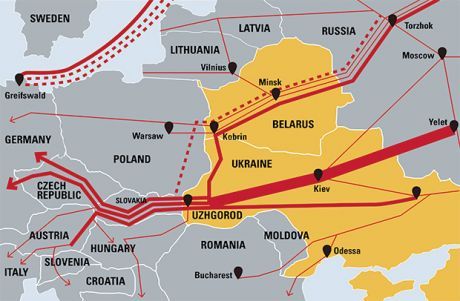News
You are here
Ukraine, sanctions against Russia and Canadian oil

August 8, 2014
Western leaders quickly blamed Russia for the downing of the Malaysian airliner over Eastern Ukraine. They have yet to produce a shred of evidence as to who shot the plane down but that doesn’t matter for the imperial powers in the west. They’ve never let a lack of evidence deter them from jumping to conclusions.
It is, in fact, inconceivable that the US doesn’t have any footage of the plane being shot down. They are watching the area of eastern Ukraine with the most sophisticated surveillance technology available including spy satellites, drones and personnel on the ground. They could not have missed the deployment of a 16-foot BUK missile in broad daylight. If they aren’t presenting the evidence it is because they don’t want the world to see what really happened.
So why are the imperial powers so intent on using the situation to blame Russia? Since the collapse of the eastern block Stalinist regimes, NATO countries have done everything in their power to militarily isolate and surround Russia. Far from brining us a peace dividend, competition between states has intensified since the end of the cold war.
BRIC development
Russia and it’s main allies in the other BRIC countries (Brazil, Russia, India, China) are a target because they want to develop without reliance on the US and western countries. The recent decision to develop a new BRIC sponsored development bank is a direct challenge to the US, which has maintained its hold on the global economy through the Bretton woods institutions, the WTO, IMF and World Bank.
For the BRIC countries, they also want to pursue capitalist globalization, just on their own terms. This has unsettled the US and the EU, which have enjoyed unparalleled power over the global economic institutions.
This cannot stand without a response from the West. The crash of the MH-17 jet liner justified a new round of sanctions being imposed on Russia. The sanctions have thus far been very specific, targeting only individuals in the Russian ruling class but there are some in the west, including Canada who would like to see them expanded.
There are specific reasons why Canada wants to use this situation to impose more sanctions. The government of Stephen Harper will use whatever inflammatory rhetoric needed to build their campaign against Russia, even if it ads fuel to an already dangerous situation. This is because what Canada really wants is to become the supplier of gas and oil to Europe, replacing Russian dominance there.
Canadian oil
When Russia and China announced a $400 billion gas deal earlier this year it sent shockwaves through the Canadian Liquefied Natural Gas (LNG) producers. The Financial post lamented that the deal could, “upset British Columbia’s dream of launching a liquefied natural gas export industry.” The Toronto Dominion Bank released a report suggesting that the deal could limit Canada’s role as a supplier of the Asian gas market.
There are still some deals being made for transport of B.C. gas abroad such as the one signed by B.C. Premier Christy Clark with Malaysian gas giant Petronas but insiders worry that the markets may dry up if Russia signs more deals in the area.
For Canadian gas producers it is, therefore, essential to try and find more overseas markets. For that, they are looking to Europe. The Russian, Ukrainian conflict has opened the door to even better terms for Canadian Gas producers.
Pieridae Energy Ltd, Nova Scotia based gas producer is attempting to build an $8.5 billion LNG plant to ship gas to the EU. They have already signed a deal with EON a German energy company to transport LNG from Nova Scotia. As Nova Scotia Energy Minister Andrew Younger says, “With the developments in Ukraine, that project has taken on more importance”.
Pieridae admits that there are still hurdles which may slow the project, not least of which is the resistance from indigenous land defenders in Nova Scotia and across Canada who are fighting to stop the project.
One of the main sources of that LNG is supposed to come from fracking operations in Elsipogtog New Brunswick. Standing in solidarity with First Nations is essential, therefore, not only to stop the destruction of traditional lands but also to help end a dangerous Canadian foreign policy that could bring the world towards a new inter-imperial conflict.
Section:









